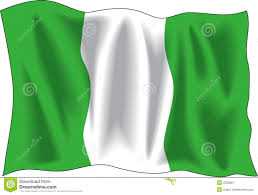 The Global Index on Modern Slavery for 2013 released yesterday rated Nigeria as the fourth country with the highest numbers of slaves in the world.
The Global Index on Modern Slavery for 2013 released yesterday rated Nigeria as the fourth country with the highest numbers of slaves in the world.
The report shows that there are 701,032 estimated population in modern slavery in Nigeria. The range of the estimate spans from 670,000 to 740,000 salves in the country.
India has the highest population of slavery in the world with 13,956,010; China is rated second with 2,949,243; and Pakistan third, with 2,127,132. The report showed that 30 million people are enslaved worldwide, trafficked into brothels, forced into manual labour, victims of debt bondage or even born into servitude.
Almost half are in India, where slavery ranges from bonded labour in quarries and kilns to commercial sex exploitation, although the scourge exists in all 162 countries surveyed by Walk Free, an Australian-based rights group. Its estimate of 29.8 million slaves worldwide is higher than other attempts to quantify modern slavery.
The International Labour Organisation estimates that almost 21 million people are victims of forced labour. “Today some people are still being born into hereditary
slavery, a staggering but harsh reality, particularly in parts of West Africa and South Asia,” the report said.
“Other victims are captured or kidnapped before being sold or kept for exploitation, whether through ‘marriage’, unpaid labour on fishing boats, or as domestic workers. Others are tricked and lured into situations they cannot escape, with false promises of a good job or an education.”
The Global Slavery Index 2013 defines slavery as the possession or control of people to deny freedom and exploit them for profit or sex, usually through violence, coercion or deception. The definition includes indentured servitude, forced marriage and the abduction of children to serve in wars.
The rankings for the index are generated using three variables: a composite estimate of the number of people in slavery in each country, an estimate of the level of human trafficking from and into each country, and an estimate of the level of child and early marriage in each country.
According to the index, 10 countries, including Nigeria, alone account for three quarters of the world’s slaves. Other countries with high population of modern slavery include Ethiopia (651,000), Russia (516,000), Thailand (473,000), Democratic Republic of Congo (462,000), Myanmar (384,000) and Bangladesh (343,000). United Kingdom and Ireland tied as the least countries with low population in modern slavery.
The index also ranked nations by prevalence of slavery per head of population. By this measure, Mauritania is worst, with almost 4 percent of its 3.8 million people enslaved. Estimates by other organisations put the level at up to 20 percent.
Chattel slavery is common in Mauritania, meaning that slave status is passed down through generations. “Owners” buy, sell, rent out or give away their slaves as gifts.
After Mauritania, slavery is most prevalent by population in Haiti, where a system of child labour known as “restavek” encourages poor families to send their children to wealthier acquaintances, where many end up exploited and abused. Pakistan, India, Nepal, Moldova, Benin, Ivory Coast, Gambia and Gabon have the next highest prevalence rates.
At the other end of the scale, Iceland has the lowest estimated prevalence with fewer than 100 slaves.
Next best are Ireland, Britain, New Zealand, Switzerland, Sweden, Norway, Luxembourg, Finland and Denmark, although researchers said slave numbers in such wealthy countries were higher than previously thought.



























